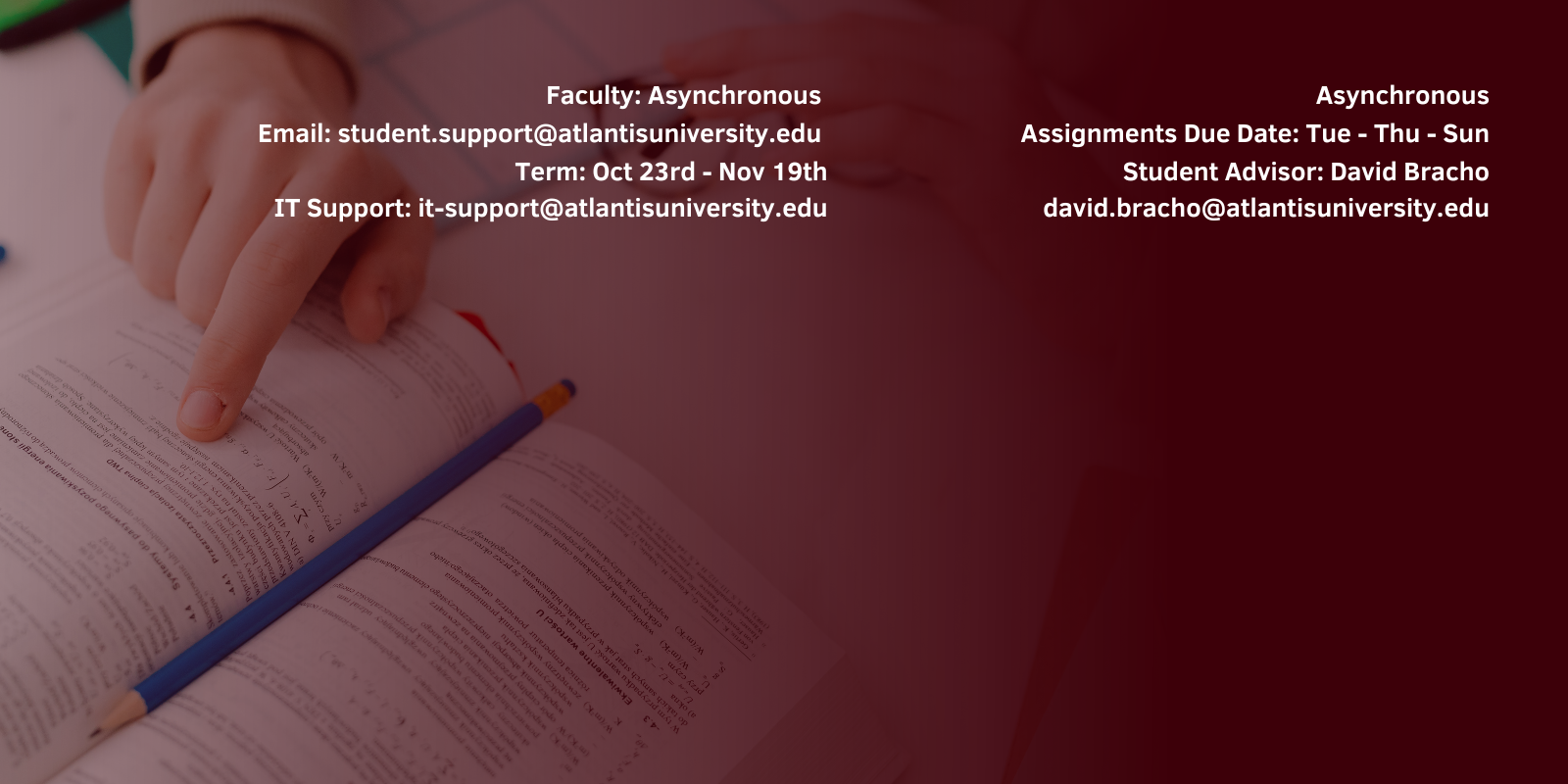
Other topics introduced in the course include intelligence and memory, personality, and research methods.

Este curso está diseñado para reforzar y desarrollar la capacidad de comunicación escrita y oral de los estudiantes a través del desarrollo de habilidades específicas enfocadas en la comunicación y el empleo de competencias necesarias para el profesional moderno.
- Teacher: David Bracho

This course presents and discusses what it takes to make a successful project; procuring the right amount of resources; how to cope with and control project changes and bring projects under budget and on schedule.
We will bring a comprehensive coverage of the most important aspects of Project Management.
- Teacher: Mariselly Rivero

This course
studies the ethical, legal, and social responsibilities of business,
particularly in the product, resource, and labor markets. Principles of moral
philosophy are applied to the analysis of corporate conduct and decision making
in the United States and elsewhere. Case studies and academic articles are used
in the discussion of social responsibility and the respect for human dignity in
organizations driven by the profit motive and competition.

The course will provide you with a general view of the natural world which will help to have the ability to look at the larger picture in live in any career.

College Algebra is the introductory course in algebra. The course is designed to familiarize learners with fundamental mathematical concepts such as algebraic equations and inequalities, absolute value, polynomial, rational, exponential and logarithmic functions, conic sections, systems of equations and inequalities, matrices and determinants.
Upon course completion, students will be able to apply a variety of problem-solving strategies to find solutions to an array of real-life problems. This course also provides the algebraic skills needed to pursue higher level studies in mathematics or in their respective academic programs.
- Teacher: Dimitry Pierre-Louis